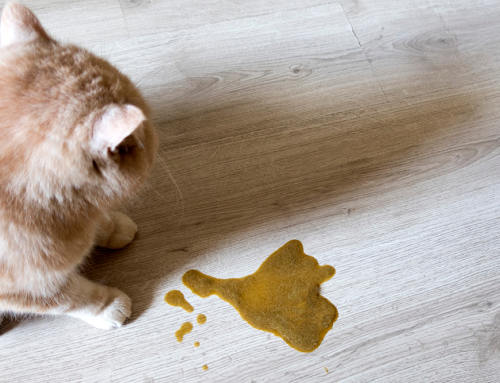Pet owners experience many physical and mental health benefits from their pet—one of many reasons you want your pet to thrive and live a long life. Our team at Wellness Animal Hospital wants to help by providing simple steps to contribute to your pet’s longevity.
#1: Spay or neuter your pet
Spaying or neutering your pet helps prolong their life in several ways.
- Females — Spaying your female pet helps prevent uterine infections, which can lead to severe systemic illness. The procedure also decreases your pet’s risk for developing malignant mammary tumors. In addition, pregnancy can result in significant health problems, such as eclampsia and dystocia.
- Males — Neutering your male pet prevents testicular cancer, as well as some prostate conditions. In addition, neutered pets are less likely to roam and experience trauma, such as being hit by a car.
#2: Bring in your pet for regular wellness visits
Pets frequently hide illness signs to avoid showing vulnerability, a leftover instinct from their ancestors that can make recognizing health problems difficult. The best way to catch diseases in the early stages, when they are easier to treat and manage, is to bring in your pet for regular wellness visits. Pets should be seen annually by a veterinary professional until they reach senior status, at around 7 years of age, when they should be evaluated every six months. These visits include:
- Physical examination — Your pet is thoroughly examined from head to tail to look for any abnormalities. A physical exam can help our veterinary professionals diagnose conditions such as heart disease, abdominal masses, and metabolic conditions.
- Blood work — Screening blood work, such as a complete blood count and a biochemistry profile, can help our veterinary professionals diagnose issues such as liver disease, kidney failure, and diabetes. In addition, yearly heartworm tests ensure your pet is safe from these dangerous parasites.
- Urinalysis — Evaluating your pet’s urine can help our veterinary professionals diagnose issues such as diabetes and urinary crystals.
#3: Provide year-round parasite prevention for your pet
Numerous parasites can cause significant problems for your pet. Provide year-round parasite prevention to protect them from pests, such as:
- Heartworms — Mosquitoes transmit heartworms, which can cause life-threatening damage to your pet’s heart and lungs. The condition can be difficult to treat in dogs, and no treatment is available for cats, making prevention the best way to address this issue in all pets.
- Fleas — Flea bite dermatitis, which is caused by an allergy to a protein in the flea’s saliva, commonly affects many pets. The condition results in excessive itchiness, and can lead to secondary skin infections, and while not life threatening, can significantly decrease your pet’s quality of life.
- Ticks — Ticks transmit many illnesses, such as Lyme disease, anaplasmosis, Rocky Mountain spotted fever, and babesiosis, that can cause significant health issues for your pet, and can be difficult to diagnose and treat. In addition, pregnant female ticks secrete a neurotoxin in their saliva that can cause paralysis in pets. If the tick isn’t removed in time, the pet can experience difficulty breathing.
- Intestinal parasites — Hookworms, tapeworms, roundworms, whipworms, giardia, and coccidiosis can infect your pet’s gastrointestinal tract, resulting in severe gastrointestinal upset and nutrient loss.
#4: Bring in your pet in for regular professional veterinary dental care
By the age of 3 years, most pets have some degree of dental disease. The bacteria that accumulate to form plaque and tartar in your pet’s mouth can significantly damage the structural support of their teeth, and can invade their bloodstream and damage their heart, kidneys, and liver. Professional veterinary dental cleanings are the only way to effectively remove the damaging bacteria from your pet’s teeth and from under their gum line.
Between professional cleanings, toothbrushing is a great way to promote your pet’s dental health. Human dental products can be toxic to pets, so ensure you purchase a pet-specific toothpaste, which can be found in multiple pet-friendly flavors, such as seafood, poultry, beef, and peanut butter, and will make the process more amenable for your pet. Dental chews are also helpful for removing plaque and tartar from your pet’s teeth. When shopping for dental treats and chews, choose products approved by the Veterinary Oral Health Council (VOHC), an organization that evaluates products to ensure they meet requirements to reduce plaque and tartar accumulation in pets.
#5: Keep your pet at an ideal weight

A chubby pet may seem cute, but the excess weight can put your pet at increased risk for several serious health issues, such as diabetes, arthritis, heart disease, and kidney issues. Keeping them at an ideal weight is the best way to safeguard them from these conditions. Steps to ensure your pet stays svelte include:
- Monitoring your pet’s weight — At their next wellness visit, our veterinary professional will weigh your pet and evaluate their body conditioning score (BCS). Once we establish their weight status, you can monitor them at home by weighing them and assessing their BCS every one to two weeks.
- Calculating your pet’s energy needs — Consider your pet’s age, breed, weight status, activity level, and spay or neuter status to calculate their daily energy requirements.
- Measuring your pet’s food — Once you have determined how much food your pet needs, measure their food portions, to ensure they are receiving the correct amount.
- Exercise your pet — Ensure your pet gets enough daily exercise to keep them physically and mentally fit.
Following these five simple steps will help prolong your pet’s life. If you would like to schedule a wellness exam or a professional veterinary dental cleaning, contact our team at Wellness Animal Hospital, so we can help contribute to your pet’s longevity.







Leave A Comment